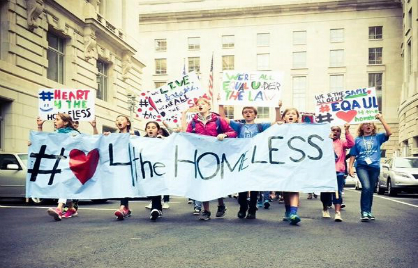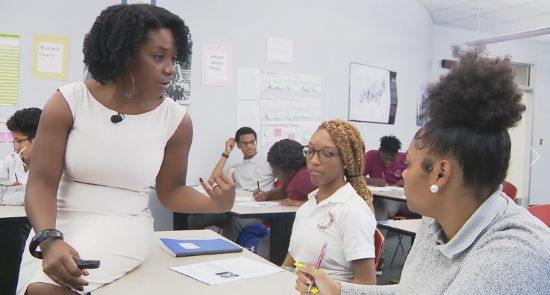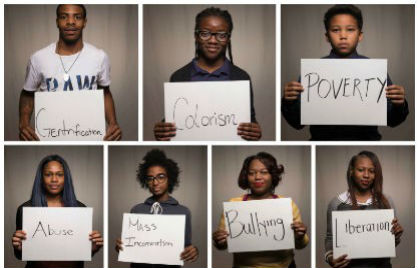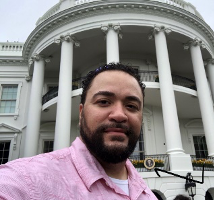Overview
Social Studies in DC Public Schools cultivates learning experiences for students to be inquisitive, informed, and engaged participants in civic life by nurturing their lived experiences and identities and preparing them to recognize and disrupt systems of inequity. Social Studies is a core subject composed of civics, economics, geography, history and other social sciences taught in every grade from K-12 using methods that align to the best practices of each discipline. DCPS Social Studies is also grounded in inquiry, with opportunities for students to analyze their content through primary source analysis.
Student Experience
All DCPS students participate in Social Studies instruction throughout their academic career, focusing on civics, economics, geography and history according to the following themes:
Grade K: Myself and My Community
Grade 1: Working and Building Together
Grade 2: This Wide World
Grade 3: Geography, History and Cultures of the District of Columbia
Grade 4: American Foundations - Early American Civilizations through the Founding of the United States
Grade 5: Foundations of the Modern United States
Grade 6: World Geography
Grade 7: United States History I- Indigenous Nations through Reconstruction
Grade 8: Action Civics
Grade 9: World History I
Grade 10: World History II
Grade 11: United States History II- Reconstruction through the Present
Grade 12: Government and Civics, District of Columbia History and Government

More than 100 Deal MS students and teachers organized and lead a group demonstration in the #Heart4theHomeless rally at Freedom Plaza.

DCPS social studies teacher Alysha Butler from McKinley Technology High School was chosen as the 2019 National History Teacher of the Year.
Visit the Gilder Lehrman Institute for American History for more information.
Program Highlights
Street Law: Georgetown law students teach a semester-long elective course in practical law to DCPS high school students. In the summer, secondary-level social studies teachers and supervisors can spend six stimulating days on Capitol Hill and inside the Supreme Court learning about the Court, its past and current cases, and how to teach about them from top Supreme Court litigators and educators.

The 2017 Mikva Challenge Project Soapbox finalists pose with their topics. The winning speeches highlighted topics such as gentrification, colorism, poverty and African American role models.
Partnerships
National History Day: Students choose historical topics related to a theme, conduct extensive primary and secondary research through libraries, archives, museums, oral history interviews and historic sites, analyzing and interpreting their sources and drawing conclusions about their topics’ significance in history, and then present their work in original papers, websites, exhibits, performances and documentaries.
Mikva DC Challenge: Students explore their communities from an asset-based perspective, identify issues that are important to them and their community, research the issues, analyze power, and ultimately develop an action plan and take action. Students showcase their year-long activism efforts at Mikva Challenge DC’s annual Action Civics Showcase.
Contact Information

Raymond Hamilton
Director, Social Studies


